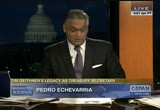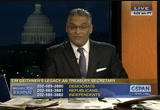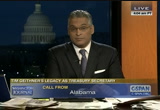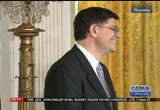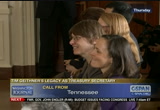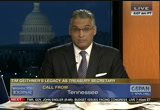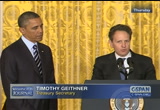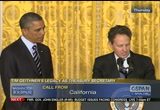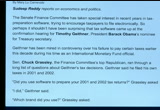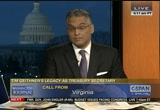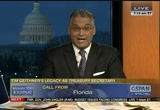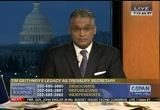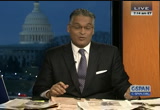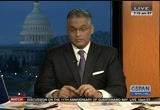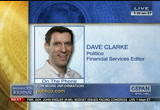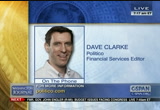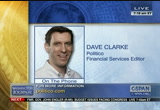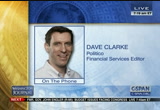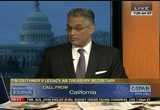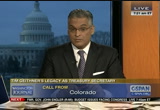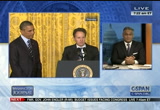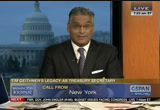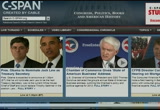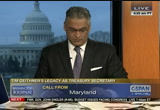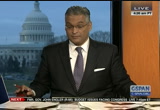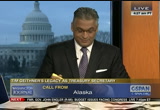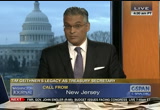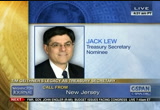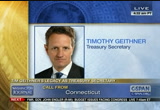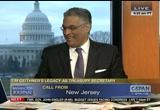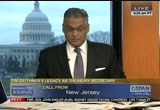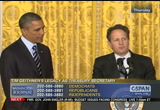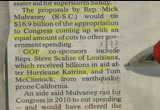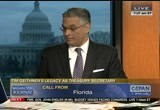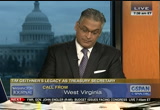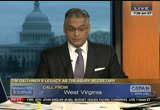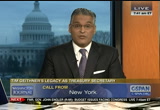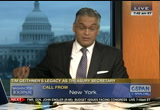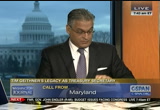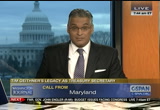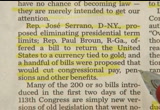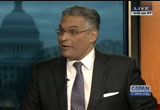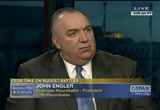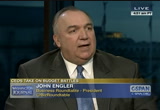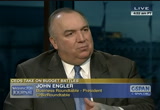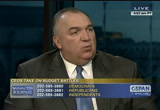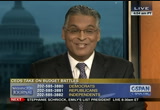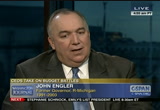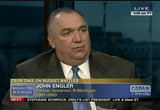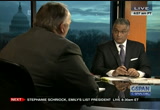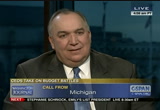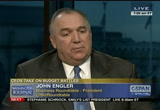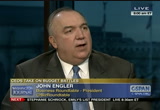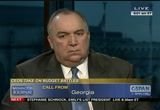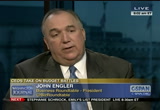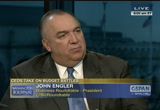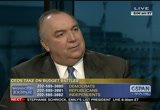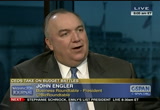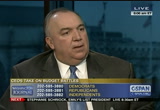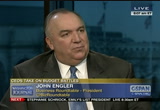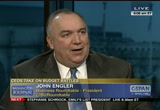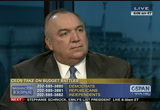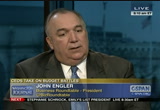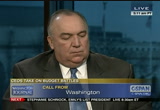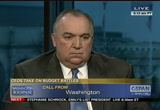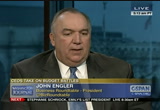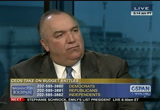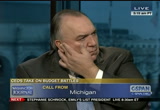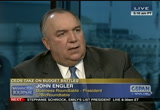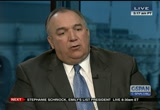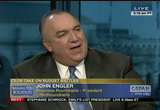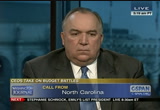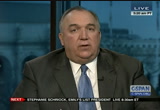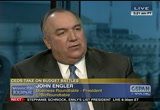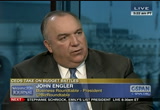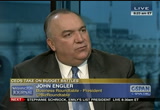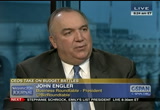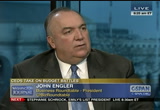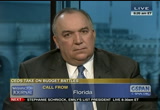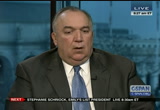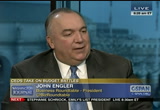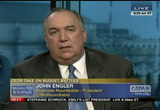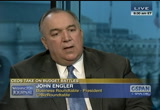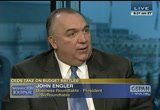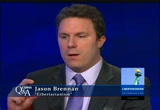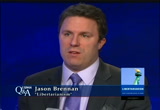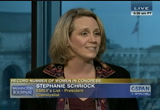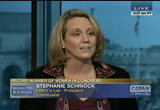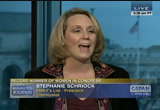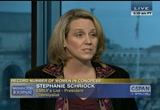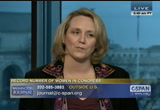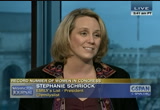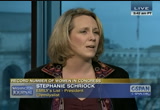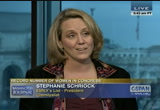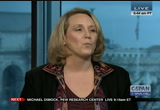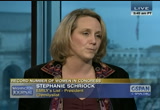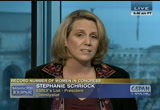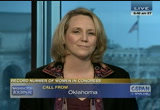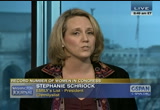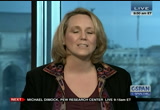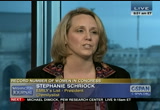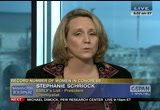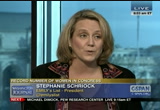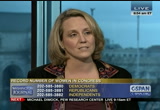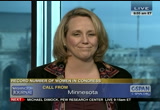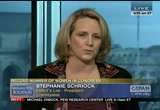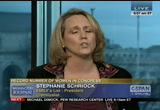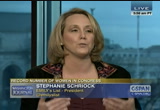tv Washington Journal CSPAN January 11, 2013 7:00am-9:00am EST
7:00 am
about the rise of women in congress. at 9:15 a.m., a look at how older and younger voters view the federal budget. >> when the history books are written, tim geithner will go down as one of our finest secretaries of the treasury. [applause] host: the president of the united states on timothy geithner and talking about his tenure as to -- secretary treasury. "the washington post" writes -- highlighting efforts made by the financial crisis and the housing industry. this comes as jack lew will become the next person to be
7:01 am
nominated into that position. we want to talk to you about timothy geithner, his legacy, his time served as the treasury secretary, and your thoughts on what he has done or not done depending on your opinion. here is how you can join us this morning. you can give us a call -- if you want to send us a twet -- @cspanwj facebook.com/cspan this is how "the new york times"highlights some of his accomplishments. it says here --
7:02 am
7:03 am
7:04 am
that is a bit from "the new york times." justin sums it up as such -- you can do the same at facebook.com/cspan. to the phones. birmingham, alabama on the democrats' line. caller: good morning. host: would do you think? caller: i think the secretary has done pretty well right now. timothy geithner is leaving a good legacy. a lot of people have not come in to what he came in on. he knew how to help the president get to where he needed to be. host: what do you think will be
7:05 am
the top of accomplishment? caller: hopefully, if we get the budget deficit in line, and since the fiscal cliff has gone over a little bit, we will not have a real bad situation. if they do not keep pushing it, the president has to let them know they cannot run over him. host: what are your thoughts on mr. jack reed coming into office? caller: mr. timothy geithner is going to guided mr. lwe. -- mr. lew. if he'd just follows him a little bit but puts his own policy in there with the president and tweaks it a little bit, i think it will work out. host: there is the nominating ceremony that took place at the white house. timothy geithner on the right, and mr. lew on the screen. on at twitter there are some opposing viewpoints.
7:06 am
james from birmingham, alabama on the democrats' line. caller: mr. timothy geithner is try to help the economy get back strong like before. a lot of people will look at this. host: tennessee, the independent line. just then. caller: i am finding myself have a hard time listening to these people call in and say these great things about timothy geithner considering the fact he came into his position 0 in $50,000 in taxes, which he failed at that juncture to pay. afterwards he was able to do so. had he not been put in that position, i asked myself if he would have been among the fat cats who did not have to pay taxes or any other number of things they have been shielded from during the past four years
7:07 am
of absolutely hideous and unconstitutional fiscal and monetary policy. host: what is chief among the policies he would criticize? caller: the big one is a lot of people did not ask who we owe the debt to. we do not owe the debt to a federal institution. as a matter of fact, we do not even print our own tender based on the constitution and how it disposed to be accomplished. therefore -- we have come to find out after the fact on the audit the fed the bill when it went through -- they only got a partial audit citing national security. host: what would you criticize on timothy geithner's policies? caller: i think you should probably cover that chief amongst all of them. that is treason. it sickens me as a note taker myself and note keeper and
7:08 am
somebody who has risked his life for his country that these people are doing what they are doing and you guys are not covering it. host: that is just an from tennessee. here is timothy geithner speaking at the ceremony. [video clip] >> when you step into this building as president, you were confronted with the worst crisis and generations. you made the political perils choices that saved the american people, says american industry, said the global economy from a failing financial economy. it did not solve all of the challenges, it could not have done so. but the actions that you took, a long with those of a forceful and creative at federal reserve, have made the country stronger and have put us in a better position to face the many challenges ahead of us. they are many.
7:09 am
host: the legacy of timothy geithner, the topic for the first 20 -- 45 minutes this morning. caller: i was wondering about timothy geithner. he did a good job on the deal that he did. like the guy said before about the interest -- who gets the interest money and where is all the money they stole? that is a problem i have a. host: the said timothy geithner did a good job. how would you describe that? caller: i would describe it as him being a wall street person and going along with wall street. he did a good job for them. host: specifically how? caller: he came in a $50,000 in taxes. why did he not pay his taxes? why is the country not charging terrace at the border? why is the country not to taxing the rich their fair share which
7:10 am
is 50% or more? that money just sits around. they have it sitting on the sidelines not even using it. host: this is the second caller that brought up timothy geithner's tax issues coming into office. this is a story with tax preparation software. here is a story from 2009 back to a sense of what is going on. you can look it up on web sites. we are talking now about him discussing he is leaving the position. you can offer your thoughts on
7:11 am
the phone, facebook, twitter, and e-mail. john from virginia on the democrats' line. caller: thank you for taking my call. i think timothy geithner -- the situation he was in, it was the worst situation that any expert can deal with. if we personalize everything, we will never have good people in office. everybody calling and criticizing him owing $50,000. forget about it, look at the situation we were in. i wish him all the best. unless we stop criticizing our leaders, and respect them, we will never go ahead. every one of us who are attacking our leaders, the country must understand if the leaders have a problem, we should deal with it and criticize them. if we put everybody on the table, none of us will have good
7:12 am
leaders in this country. host: sarah from edge water, md., on the -- we will go to phil in florida. caller: good morning. i agree with the last caller. the $50,000 tax bill is a red herring to keep us talking about it and away from the real issue. my concern is, where did mr. geiger come from and the person he is succeeding, they are rotating in and out of the private banks. i am not sure where mr. lew is from. do you know where he is out of? host: he served some time at citigroup and working for them. he had a significant bonus before he joined the government had entered the state department before moving to his position. caller: my concern is this
7:13 am
revolving door. it was portrayed very well in the academy award winning documentary "inside job." it investigated the crash that we had in 2008 and 2009 and how these guys go from these big wall street banks write into government and right into education, too. i recommend all of the listeners take a look. the guy won the academy award for best documentary. instead of saying thank you to the academy, the first thing he said was, i want to tell everybody that not one of these bankers is in jail. host: what is your concern about having experience on wall street and coming into a government position? caller: i think it is a transfer of wealth. one of the callers mentioned he did a really good job. you asked a good job for two, and he said his buddies on wall street. look at the banker bailouts that
7:14 am
we have had. henry paulson, even in the elections when congress voted it down the first time, the banker bail out the last month or so of george bush's administration. obama and mccain came off of the campaign trails. they got on the phone and they got the congressional black caucus to change their votes and twist some arms and it passed and obama became president. i announcing that is why he became president, but you have to look at where the money is coming from. host: he is asking questions about jack lew, the next secretary of treasury. dave clark from politico joins us to learn a little bit more about him. to the caller pose a question about his background, particularly about wall street, can you tell us and on his experiences there and what he
7:15 am
brings to the white house? caller: most of his background is predominantly a denture washington. he was a top house aide for a long time. he worked in the clinton administration. in the obama administration he was also the director as well working at the state department. he did spend two or three years, 2006 until 2009 at citigroup in new york. he is described more as a manager as of somebody making investment decisions. one thing that has come up is a question about whether or not he has enough experience in financial markets and with financial regulatory issues. he did spend some time on wall street, but i think he is considered much more a creature of washington. host: what is the message from president obama about this decision?
7:16 am
caller: when he picked timothy geithner, it was to handle the financial crisis's aftermath. mr. lew's challenge will be the spending and tax fights with congress. he is signalling he is really gunning for these budget fights with congress a in the upcoming year and years to come. host: will that be the total focus of what he does and could that affect other areas he has to attentive? caller: it will be his main focus. obviously, he has a broad portfolio with international issues, dealing with financial markets. for the 2002 dodd-frank rule, he will be a head of the new council of regulators and the oversight council. if he is confirmed, he will have plenty of things to keep him busy. unless there is a quick deal,
7:17 am
most of the time he will be dealing with budget issues. host: 2 has weighed in from congress and the senate on this decision? caller: a lot of republicans are saying, let's have a vote to see what it comes up during his confirmation hearing. i think right now the expectation is he will be confirmed it. we have heard specifically the top republican in the senate said he will vote against mr. lew and senator bernie sanders says he will vote against him as well because he has concerns about his policies toward the middle class and also the fact that during his confirmation hearing to be budget director he mentioned he was not convinced the deregulatory push of the late 1990's and 2000's was responsible for the financial crisis. host: stay on the line.
7:18 am
we want to show you a little bit about jack lew speaking at the ceremony yesterday. [video clip] >> i look forward to joining the treasury department. a team i have collaborated closely with over many years and have come to respect greatly. caller: talk a little bit about leadership style. what does the temperament and bring?nce of himr. lew caller: he would do the sunday talk shows. he is more of a backroom negotiator, maybe a more even keel the temperament. i think one of the things we saw yesterday at the announcement was a in some ways as far as being a trusted adviser at the treasury department,mr. lwe will
7:19 am
have tough shoes to fill because it is really clear that the president overtime came to really rely on timothy geithner and really view him as a trusted top adviser. he obviously has a really good relationship with mr. lew as well putting him in as the chief of staff. i think mr. timothy geithner has to be more public and upfront during the height of the financial crisis that the treasury secretary normally may have been. mr. lew is a little bit more of a back room operator and somebody who has been part of deals in the past. host: that is dave clarke talking about the nomination of jack lew. our focus this morning for the remainder of our time is the legacy of timothy geithner. if you want to weigh in on the actions and decisions he has made, the numbers are on your
7:20 am
screen. here is a benny from stockton, calif. on the democrats' line. caller: good morning. i think timothy geithner will have a good legacy. obama choosing him, it kind of save the country from disaster. i think he is going to have a pretty good legacy. i think also that mr. obama has not chosen any african americans for his cabinet. that is one of the things i wanted to say. host: from twitter --
7:21 am
bob is next from colorado on the republican line. caller: good morning. i wanted to encourage everybody to watch the interview on the new book. she takes to of the way down into the late 1980's and 1990's and how all of the banking and real-estate debacle happened. regarding the previous caller's comments about the revolving door, these guys are all of the same old. they are all in it together. these guys created this problem, and they are going around and around. the taxpayers are paying for it. i would encourage everybody to pay attention to it. host: the you have anything to add about mr. timothy geithner specifically? callerwe are asking about his tt
7:22 am
the treasury department? do you have anything about his time serve that you went to credit or discredit? caller: i would just say that as far as specific actions, i do not have an example of that. i would say he is in the revolving door that the previous caller talked about. these guys are all in at this together. they have altogether created this problem. they are just changing positions over and over again. host: you have said that, so we will move on to michael on the independent line. we're talking about timothy geithner and his tenure there. caller: good morning. i am just like a small cog in the wheel here. i had about $300,000 that i
7:23 am
lost a denture real estate and stock during the period. i was glued to c-span looking for answers. when timothy geithner first came in, he was very nervous. he made me nervous. as his tenure when a long, he calmed down a lot. it was kind of a soothing factor. i want to give him credit for that. he was a bit call mean, even though i did lose my shirt. as time went on, the stock market went back up. are recovered some losses. yes, they are all in the good old boys club, but he did, things down a little bit for me. host: to yet what the devil is that the beginning and what can be down as it went along? -- can you add what made you
7:24 am
nervous in the beginning and what can you down as it went along? caller: watching the oversight committees, he calmed down. he calmed me down a little bit. i was able to at least accept the fact that i lost money along with other people. it came back eventually in the stock market. host: if he wanted to see timothy geithner over his time at the treasury department, i will advise you to go to our web site c-span.org and a two-hour video library specifically. you can type in his name. you can look at speeches he has made, confirmation hearings, other events he has participated in and get a full sense of the man himself. our video library there on the screen the to learn more about him. if you will notice on the front page, it talks about jack lew
7:25 am
being nominated. but about him as well. sarah from maryland is on the line for republicans. caller: good morning. i do agree with what a lot of other callers have said about the connection of wall street and the people appointed to these very important points of the treasury and fed it. mr. timothy geithner probably did the best he could win the crisis was unfolding. there were at the time not that many choices. what i am critical of is that between the federal reserve, the treasury, and our government, instead of breaking up these large banks, they did not do that. they actually merged some of the banks and made them bigger and more powerful and more influential than the word before the crisis. to me, that was a huge mistake. now, these banks control so much
7:26 am
of our economy that i sometimes feel they literally can hold not just the economy hostage, but also the politicians and these people who work at the fed or the treasury. i think that connection between wall street and these institutions that should really not be legal. there is always a conflict of interest. when you work for goldman sachs or one of the other wall street banks and you are heading these departments or these powerful institutions, it is just not right. that is all i have to say. host: alaska, this is don on the independent line. caller: i am a big fan of obama and timothy geithner. when all of this took place, i
7:27 am
am an older guy. i am 83. i was watching everything clear back to the scandal with the prime lending trouble that we had. this is not the gist of the problem. the just of the problem was that somebody came in when they were badly needed and straighten everything out and it was not very pretty. it was even worse before he tried what he did. obama is a scholar. he studied what franklin delano roosevelt did. i lived through the depression. it was not really that great to tell you the truth. i was a little boy, but i can remember it very well. this is what franklin delano
7:28 am
roosevelt did it, too. people who changed things have to step on some toes and heard some feelings. what obama did, but timothy geithner did, and what the people did at that time got us out of trouble. we have a bunch better economy now ford obama's second term that we had in the beginning. host: there is a picture of in the paper that features the vice president meeting with various groups as he has been on the topic of gun violence. here it highlights --
7:29 am
7:30 am
dave from englewood, new jersey on the independent line talking about timothy geithner. caller: i just wanted to say that i think timothy geithner has been a complete disaster. what this man brings to the table, he has never worked again for the private sector as like 95% of obama's cabinet. they hate the profit motive. look at the job situation. why is it that nobody ever looks at the black jobless rate. it is currently 14%. neither obama nor romney even talk about the black jobless rate. if you look at the amount of debt that has been run up under this man and if you look at their budgets, they expect $1 trillion deficits as far as the
7:31 am
eye can see. they did not care. i do not see how people can say this man has been a success. these socialist policies have never worked anywhere in the world. look at what is happening in europe. all of these countries spending all of this money, they are being downgraded by ratings agencies and have very low economic growth. host: jack lew coming in, and he was the president's point person. does that give you any confidence on budgets considering his background? caller: no, his background is just as bad. he practiced law for a few years, but he is basically a politician who used to work for tip o'neill. he does not care anything about economic growth. when the you hear any obama administration official talking about economic growth?
7:32 am
that is what is needed, not more government programs that just run up debt. who is going to pay the debt back? host: ran on the independent line. caller: i am calling about timothy geithner exactly and the whole federal resolve -- reserve, for that matter. people are making like me of timothy geithner 0 in tax money. i do not make lightly of that. he came in a 0 in tax money knowing that he owed tax money. he was thinking he was above it anyway. that is one point. the second, our unemployment rate is sky-high under timothy geithner. the national debt is sky high under timothy geithner. third, we have lost our national
7:33 am
credit rating, our world credit rating two times. it was the worst in american history that we lost our credit rating twice. our worst economic downturn in history was the great depression. timothy geithner is probably very unhappy about that because he would have liked to see this one be worse. host: call from twitter. new jersey, marlene on the independent line. caller: good morning. the caller before the last one release still my thunder because
7:34 am
timothy geithner, when he worked for the international monetary fund was paid -- if you do not know it you are paid your salary. on top of that you put an with the taxes in your home country are and you are given a check to pay your taxes. timothy geithner applied for that money. every year he worked for the imf, he signed he paid his taxes and never paid them until mr. obama nominated him for the treasury. my comment on him now is, trillions of dollars have been put on the american public did not even though it got through home mortgages that the banks have dumped on fannie mae and freddie mac. the worst is on the general motors, most jobs saved or not even in this country. you are looking at him dumping close to $30 billion on the tax payers. general motors was angry that
7:35 am
because the american people on the stock, they could not give themselves big bonuses and drive private jets. he just sold off some of the stock, it allowed them to buy private jets again. he is looking at dumping the rest at a loss of $30 billion to the taxpayers. host: that was marlene from new jersey. i will not announce the name i in because i will miss it up. give us a call for the remaining time we have on this topic taking a look at timothy geithner's service. we had about 30 or so comments
7:36 am
7:37 am
that is from "the daily news." florida up next, warren on the democrats' line. caller: yes, i am very -- host: i'm going to ask you to stop listening to the television and talk. caller: i am very disturbed with the way tim geithner -- they are making it seem like he was in control of everything and brought us further under. i think he did a great job at straightening out wall street and saving the -- i am sorry.
7:38 am
you make me nervous. saving the auto industry and so on. it was not really timothy geithner that did all of this. it was a team of people who did this. are acting as if tim geithner had the final say on all of this. they keep bringing up the $50,000 he owed in taxes is are redundant and old. was talk about some of the things he did right. it is so negative it. that is what is bringing this country down more than anything is the constant negative attitude. host: charleston, west virginia, republican line. caller: good morning. how are you? mr. geiger's legacy is that he was part of a team who came into office when this country was heading toward a fiscal chasm,
7:39 am
an abyss, not just a cliff. he and his team pushed the gas pedal to the floor. i had a real opportunity to do something positive in this country and allow people to keep more of what they earn at. they did exactly the opposite. i cannot believe that these people who are doing this to our country are so stupid. they just do not know any better. i think they know exactly what they are doing. at least 51% of the american people voted not once, but twice to keep that gas pedal pushed firmly to the floor so that we go directly over the chasm and into financial abyss to the tune of over -- now approaching $20 trillion in debt that we can never pay back. that is his legacy, sadly. host: the president of
7:40 am
afghanistan in town for a meeting with the president. a joint news conference planned for today. a story in "the new york times." that will take place at 1:15 this afternoon. you can see it live on c-span and listen to it on c-span radio as well. a joint news conference with president obama and president karzai. the story from "the new york times"takes a look at the future. it says --
7:41 am
jason from jackson heights, new york. caller: i just want to say something quickly. tim geithner is representative of wall street, not of main street, so to speak. there is a lot of ignorance, not about the debt. the debt is not a problem. interest rates on tenured of bonds are very low. the markets to not think there are a problem. we can hold most of our debt unlike other countries. there are just using the debt as an excuse to cut the social security, medicare. do not fall for that. host: go back to your for statement and expand on that and tell us what you think mr. tim geithner serves wall street. caller: i am a student of
7:42 am
economics. the stimulus was not big enough in 2008. tim geithner knew that on purpose. we lost about 1.6 trillion dollars in annual demand. the stimulus had to cover the demand. it is only $300 billion, and that is because tim geithner did not want it too big because it would cause a little bit of inflation. financial industries do not like inflation. he did not want the stimulus to be big enough so it was why we are still there around 7% unemployment today. he works for wall street. he has been in that apartment his whole life. -- he has been in in that department his whole life. host: mr. hagel will have to take on about the defense budget
7:43 am
issues. one more call is helen from maryland. caller: hello, this is helen. i am calling in to say i am listening to all of these people on c-span. of course, i have been watching for quite a few years because i am a retired woman. i retired after 30 years with the federal government. i was actually recruited in 1960 out of high school from western
7:44 am
pennsylvania. i have never had a chance for such a wonderful job in my life had this not been going on during that timeframe. i hear these people and their comments, and i want to say i think people sometimes missed judge people a lot. there misjudging timothy geithner here. they are missed judging president obama. host: how would you say they are misjudging mr. geiger caller: by saying what he is thinking. they do not know how he was brought up and with what principles and so forth. i was brought up in a country with very good principles. host: one more thought. caller: i went to the federal government, and i carried those things i was taught by my mother and father into my job for 38 years. i was a woman.
7:45 am
7:46 am
that is in "usa today." coming up, we will talk about business related issues including future battles with john engler who is now president of the business roundtable. and a record number of women are serving in the new congress. stephanie schriock would join us to talk about that. we will have more when we return in a minute. [captions copyright national cable satellite corp. 2013] [captioning performed by national captioning institute]
7:47 am
>>hopkins could read the president of's boots unlike anyone else. he can the closest to gaining admittance to roosevelt's heavily forested interior. he knew when to be still a in the presence of the president. went to press him, when to back off and tell a joke. after he won the election, wendell will he was in his office. they remain friends. he said to the president, why do you keep that man so close to you? that man being hopkins.
7:48 am
he did not like hopkins. roosevelt said, you may be in this office some day and you will understand. he asks for nothing except to serve me. >> trusted adviser and confidante to fdr, harry hopkins lived in the white house ford 3.5 years houseavid roll on "the hopkins touch." on c-span 2. movie stars help the government sell or bonds. irene dunne, all part of a contingent of 50 screen celebrities giving their time and talent to aid the national war effort. >> what we want to look at today is how popular culture presented the war. how was it presented in movies
7:49 am
from the 1940's? how was it presented and comic books? how was it presented an athletic -- athletic events from the 1930's and 1940's? how was it presented and that music in the 1940's? >> popular culture and world war ii with randy roberts. lectures in history saturday night at a clock and 10:00 eastern on c-span 3. host: the former governor of michigan joins us, john engler. his recent position is at the business roundtable, serves as their president. guest: good morning. host: the business roundtable represents guest::chief executives of leading u.s. companies, global companies, 200
7:50 am
ceos, $700 trillion in revenue. companies that do more than half of the private sector are and the advent of the country. there are big investors. -- are indeed of the country. host: do they come to washington? what did they look for? guest: what business would like in washington, most of our members are significantly larger. we have a lot of mom and pop small businesses and our supply chains. the chairman from boeing likes to say, every time a boeing plane land somewhere in the world, there are 11,000 suppliers landing as well. we want to get the risk down, the certainty up, and have a predictable stable highly competitive environment from which to go out and compete around the world and win. host: one thing we heard leading
7:51 am
up to discussions late last year is that some type of certainty was needed from decisions made. did the people you represent find the guest: certainty there is some of it. much is to be done because long- term overhang is still serious. nobody believes that our current spending course is sustainable. we have made promises that cannot be paid for. maybe not tomorrow or five years from now, but down the road changes need to be made. you're seeing this at the state level where governors and in both parties and legislative bodies are coming together. watch illinois right now, they are struggling with their pension debt, but at the national level we have not had the success yet that some of the states of had. host: looking at spending federally, what has to be guest::the first quarter this
7:52 am
year is one that debate will take place. you have the debt ceiling, a continuing resolution. at the end of march, the year is half over. did you have sequestration mandated. those are all intertwined. they represent different points from which you can have a conversation about spending. i actually think there is less pressure short-term from the budget year to year. it is the long-term entitlement programs. at the discretion of the congress on an annual basis, maybe only 40% of the budget they control. much of it is locked in and on a trajectory that ends badly at some 0.30 or 40 years. that objective statement comes from the president's own
7:53 am
appointees. the presidents in both parties of had it trustees that say, this will not work long term. i think the logical approach will be to think, how can you now make some of these changes. in the 1980's they adjusted social security and medicare it is a little bit. those are phased in over a long period of time. host: what do you think about the idea of using the debt ceiling as a starting point to talk about budgets and spending? guest: there is no question that congress is in a brittle debate at the end of last year over taxes. you have heard the speaker and senator mcconnell said, we are done with that. now, it is time to move to the spending. the debt ceiling, i have always thought the country is not going to not pay its bills.
7:54 am
we will not not pay interest on money we have borrowed. is there a point of leverage? that is subject to debate. i think the sequestration and continuing resolution -- the other thing we have is the budget resolution for 2014. you might as well look at them together. there are colliding any way. i would hope that we could get some success of in negotiations to vote now for changes and 30 or 40 years will make a difference. host: john engler joining us until 8:30. talking to us about ceos and taking a look at their thoughts on the budget and federal spending. if you want to join in the conversation, the members will be on your screen. -- the numbers will be on your screen.
7:55 am
you can send us off of twitter a question or a comment. send us an e-mail, too. the president nominating jack lew to become the treasury secretary. partly and chiefly because of his budget experience. what are your thoughts about the pick and what he brings to the table? guest: i certainly hope it will be positive. i think he will be on a roll with treasury to be having a lot of data at his fingertips, which indicates virtually no interest environment that we are in, it has its pluses and minuses. it also is an environment today where there is not much inflation. if he were to compound inflation in the future, he would well understand what that would do to budgets as well. i think he hopefully is able to bring a perspective and said,
7:56 am
let's get some long-term problems dealt with now because here are the risks. he has to be a risk manager. he has to be able to explain these things. this has not been talked about yet. i held as treasury secretary -- he has had experience around congress -- he is more of a washington person. i would hope because he has had political awareness, he would understand the significance and focus on a growth agenda. the fundamental challenge of the country is that 2% gdp growth is not adequate. we need to bump that up. historically we would be looking at 3.3%. that helps us of a lot of fiscal problems. it also helps people to work and helps families get stronger. all of that would be an enormously important thing.
7:57 am
i think there are some policies, some of which the treasury deals with. we think having the highest corporate tax rate and having a business tax structure which is not as competitive as some of the people we go up there every day and have to go head-to-head with is a good thing. you put that on the list. hopefully, he will look at the implementation of dodd-frank. it is not all of the treasury's responsibility. to understand what we are doing here, and how that fits into the global agreements up there. you have seen some flexibility of the international level recently. you would like to see reasonableness here. it does need to be revamped. much has not been refined yet because the rules are still being written.
7:58 am
appropriate implementation of dodd-frank and to understand where dodd-frank can be helpful and where going to far and sup hurting the u.s. economy or hurting consumers. host: john engler is president of the business roundtable. david is up. caller: thank you for taking my call. good morning. i met you at an anti-drug rally. i think it was in your first term. i hope you're all small bill was still running. you happen to take a helicopter. i just want to know how you ceos -- we have a rotten ceo for governor now, and gov. snyder. i know you are in cahoots with them. how did you happen to hand over
7:59 am
a $4 billion deficit when all your republicans say "how you balance budgets." now michigan is worse off and they are making a right to work state. you're republicans take things and they turned to total crap. guest: obviously, somebody from the other part of the aisle. the. i will make is what i left, we had a triple a rating. we had not had that in 25 years. we did have a balanced budget. it was under stressed. it was the economic conditions. the new governor that came in ran into considerable problems. governor snyder is doing a very effective job. he is having to compete with states like indiana where gov. daniels has had success. in the midwest is interesting to watch how competitive -- i will
8:00 am
make this point. we kind of understand how states compete against each other. what needs to be understood is nations nations compete like states to do. sure help you with making the infrastructure is right. all the nations are doing that to us. there is not a strategy to take on other state-sponsored economic activity. state cooperative is also what you need. with the president's commission on jobs, a contentious relationship between government and major employers was here in the united states.
8:01 am
host: joe from georgia. caller: i love c-span. we have three taxpayer champions. steve more is a good friend of mine. he was talking to john boehner. he said the president said we didn't have a spending problem. i was amazed at that. we get congressmen collins yesterday to talk about cutting the spending. we have a spending problem. your comments and what the president said about a spending problem. i think steve moore is a great
8:02 am
champion. guest: i didn't hear anybody say anything to anybody else. spending is at an all-time high. we have a spending in relation to a revenue problem. we have to take a look long term. if the people in charge of the social security system say this is not sustainable over long period of time, that spending challenge -- how do you pay for those promises? there is that part. when the deficit go up as much as they have gone up -- we're still struggling with an unemployment rate that is just below 8%.
8:03 am
if it was 5%, things will look different. we have an imbalance on spending and revenue. part of growth is having a competitive jobs climate. that is why georgia maybe has done well. california is suffering and losing jobs. host: what about jobs going overseas? guest: they do pay american living standards. you have laws that require minimum wages in this country. we are seeing jobs that are coming back. there are jobs that do go overseas. many of those are jobs to meet
8:04 am
markets in other places. the auto companies have big foreign operations. those sales create opportunities back here. we did a study that looked at the importance and something like one in five jobs in america today depend on trade. a significant number of jobs depend on a global investments. the foreign sales -- if you make profits, you should be able to bring those home. we are the only major industrial country that discourages the return of capital to the mother country. in the u.s., you pay your local tax and if it is less than 35%,
8:05 am
to bring the money home, you pay the difference between the local rate and our 35% rate. you have a premium on those foreign earnings. the estimates are as much as $2 trillion that are trapped offshore. host: showed that money come home and be put into reinvestment of the company? guest: that is where senior citizens could be getting dividends. capital investment may be made. the wages get paid for. there is no argument we are better off here in the united states if the money is kept off shore. i do not get that. then there would the desire to build a research and development
8:06 am
center in another country. the flow of talent. we need to work hard on getting a comprehensive immigration reform bill in place. it is also a talented and not just capital. we need to be able to keep the talent and in some cases attract the talent. host: building jobs in america? guest: look at silicon valley. public have those companies were started by people that were not board in the united states. there is a tremendous contribution by innovators that were born in other ports that of come here. host: chuck in florida, good
8:07 am
morning. caller: good morning. we have to fix social security. it is and entitlement. really, it is and not an entitlement. social security belongs in the trust fund. how would the politicians like to put their money into the general fund they have for retirement? host: and i would just add to that. guest: we're talking about slowing rates of growth. we can fix much of america's problems if we change these trajectories. the gentleman is right.
8:08 am
anybody that is of an age where they are about to drop social security are probably not at risk. we have triplet daughters at home. at some point, they are the ones or the 20-some things out there looking for jobs, there are the ones that will be at risk. not somebody today. the trust fund will not have enough money to make the payments that have been promised. will the money to be there? probably nine. there are a lot of things you could do. 5% of the federal budget that could be reduced. i was in the legislative branch
8:09 am
for a number of years and served as a chief executive. i think he should give the chief executive more accountability. take the department of homeland security. if you cannot cut part of that budget, you would not be a good manager. there probably is not a lot of flexibility. you need to give agency heads and president's more flexibility. this is not a democrat versus republican problem. this is institutional. that presupposes the pass a budget. host: the defense department will have hiring freezes and cutbacks. is that a good strategy?
8:10 am
guest: sequestration is across- the-board cuts. i suspect anybody, if they were in charge would say maybe a smarter way is to change this or eliminate that. maybe there are some priorities that could be increased. you need to manage budgets. in the past, somebody got something allocated it perfectly. we can take 5% off of everything or 3%. i'm not a fan of across-the- board cuts. it is difficult. we were able to create the flexibility and the success in managing exceeded our expectations. we will do something at the round table in february, a
8:11 am
conference on transformation. you have to go back to president reagan. i think president obama should have the authority to reorganize the executive branch. he should be able to put in some of these programs. we do not need 40 or 50 separate work force agencies. we end up with sometimes 10 or 20 and we need to consolidate that. more program on the problem. host: this is robert. caller: good morning. in addition discussion this morning from timothy geithner to the governor that is there now. i am an economics and accounting major.
8:12 am
i think there's been a lot of a snake oil and cooking of the book's going on. they have written off as a lot of the debt. they cook the books and say, " look what we have left." if you look back at what they pay for, our major problem is a certain sector of the society which is banking. it is where the biggest problems were. none of that went on the books. it is a hidden type of thing. i look at that -- are they telling us the truth about how the accounting is going on and how we are dealing with it?
8:13 am
guest: i do not know if there is a good cooking of the books. i do think that a problem in the debate on budgets is what is the baseline? what is the current spending and what is anticipated spending? sometimes they are arguing about the numbers. that keeps them apart in terms of their solutions. times the numbers get so big -- sometimes the numbers get so big. they throw them around routinely. somebody in the paper did a comparison on the relief measure for hurricane sandy and what that means. the bill that was put forward in
8:14 am
the congress is bigger than the annual appropriations for the entire departments of the government. relief measure. it gives you a sense of the magnitude. you want to help out after the storm. the relief measure bigger than the department of agriculture budget for the year? that is a big number. those are how budget sked impacted. -- those are how budgets get impacted. we do not set money aside for disasters. we're at a point when we have to do a better job of managing our
8:15 am
resources. there should be in the 21st century the kind of technology that allows us to have great transparency across these expenditures so citizens can see what is going on. host: johnny from michigan. caller: hey, governor engler. i think you're being disingenuous when you say -- on wikipedia. the head of alcoa -- they were considering -- and about unions and how they were trying to
8:16 am
squeeze corporate profits. that is how the roundtable got started. they voted for things like nafta and no child left behind. what does the business roundtable stand to gain if social security is privatized? how much profit as wall street make if social security is privatized? host: you were talking about entitlements. guest: try to rephrase what he is asking. social security goes to individuals. you looke at greece and some of the other european nations
8:17 am
and their support programs for people. they are being slashed. we're seeing is a pal these into bankruptcy -- we are seeing municipalities into bankruptcy y. that means they are going to be reduced. that impacts individuals. i think the united states should act earlier. some future congress will have to act on that. your options get fewer and fewer and uglier and unclear. -uglier and uglier. we should be pushing little by little.
8:18 am
maybe a month every so often an increase in the eligibility when you're first eligible for social security. it was a different set of mortality tables when it was first designed. use the correct calculation for cost of living. all the economists from the left to the right -- we should use the correct calculations but we do not. that could save billions of dollars over decades. you do those kinds of things. those aren't even cuts. umping goes up last fast -- fast.ing goes up last ess
8:19 am
you'll have cuts. it will happen in my lifetime. we should not leave that to the future retirees. host: this is barry. caller: how is it going? thank you for taking my call. host: you are on. charles, next up. caller: yes. whitey keep bringing up this thing about entitlements for the budgets -- why do you keep bringing up this thing about entitlements for the budget? trying to squeeze the middle class to fix the budget. it was the rich and what street that ran up the debt.
8:20 am
they created this mess. that is not part of the budget. the thing about social security, that is not hard to do. raise the cap. social security has a surplus right now. there were two wars, the tax cut that was not paid for it, put on a credit card. know you want to take from the poor? i am disabled. it is tough. you want to squeeze what we are living off? guest: nobody is proposing a change to your benefit whatsoever.
8:21 am
the assumption of 30 years from now there will be somebody like you, on disability, drawing social security and in need of support. you can get it today because of investments that have been made. money has been set aside in the past. that person in the future will not be able to get it. it is part of the budget the united states. deficits are reflected and that's when you calculate that long-term deficit of the united states. you could say we will pay what we will pay and that is it. and the benefits are not affordable in the future.
8:22 am
host: the caller brought tax rates. guest: they are going to pay more. that is understood. there wasn't a huge push back there. the president ran on that. he promised to raise tax rates. the concern that exist in business leaders would be whatever you do with tax rates or spending or with the priorities, let's try to think about how we can get the united states fully competitive so we can have more robust economic growth in this country. that is everything from how you do the implementation, affordable care act, dodd-frank,
8:23 am
where we go in the future with regard to trade policy. this is a very complex economy. the perfect time to be doing a lot more of the building of our nation's infrastructure. of our competitors have been hard at that. we're falling behind. that will make us more competitive in the future. at the same time, we have to think about the future. can we continue to sustain that if our k-12 system is not working well? we cannot have a dropout rate in this country.
8:24 am
host: there was a story in "the wall street journal" taking a look at ceo's. here's a story and this is the headline. one thing that most executives said the tax -- they plan to return stocks but did not return calls or e-mails. those your present live in this world. guest: i think that's exactly right. if you can sell today and payer lower tax rate, most people would choose to pay a lower tax rate.
8:25 am
people defend the ability to get a deduction for charitable contribution or a deduction on .heir corhome mortgage some companies pay dividends to their shareholders in advance of the dividend tax going slightly higher. do you see a revamp of the tax code? guest: we are not as competitive as we should be. both chairmen have been thorough and their preparations to try to deal with this issue. president has put forward some proposals which would be an improvement. we think there is a potential. right now you'll see a
8:26 am
preoccupation to get a budget in place. then you could move to this. we have a loss of work that needs to be done. we talk about certainty. all the individual rates were made permanent. the tax code in recent years has been filled with provisions which expire in one year or two years. that doesn't allow anybody to plan. host: virginia from naples, florida. caller: good morning. i appreciate your being on this program very much. in today's "the wall street
8:27 am
journal," there is an editorial written by mr. harris that breaks the $60 billion down for sandy relief into understandable numbers. our budget deficits, over $16 trillion at this current time. it should be broken down into dollars. $1 trillion is 1,000 billion. guest: the bottom line is there is a big problem. she is making these numbers understandable.
8:28 am
many years back, a senator said something about the idea about $1.2 and $1.3 and they were talking about billions. the numbers get so vague. this is the real number and these are real big problems. as big as these numbers are, it t small changes now that changes the trajectory. i think that is why the current elected officials have an obligation to deal with these issues. they should be focusing on the agenda. that makes things easier for growing.
8:29 am
host: a call from michigan. good morning. caller: he is familiar with my territory. you are talking about pension cuts and cuts in wages. tell the viewers what severance package you received from the state of michigan when you left the governorship. i and the stand it exceeds $400,000 a year. would you be willing to take a cut in your retirement? guest: if it is $400,000 the checks are being intercepted somewhere. one thing we did that was
8:30 am
important when i was governor is we look at the whole public pension system and change that to a system that i think is much more flexible. about half the people that work for the state government never qualified for any pension because of the way it was structured. we changed that to date defined contribution program. the latest numbers are about $4 billion to $6 billion already in reduced liability. we were dealing with the fiscal cliff at the end of last year. the white house has stepped up their outreach in one to sit
8:31 am
down with business. the challenge remains on how you get the follow-through. the difficulty that was in the negotiation indicates a challenge that i think is in part addressed by the congress doing something that speaker boehner has tried to do a little more. these things are so complex to pre-negotiate. in the old days, the house or senate would act and the other body would have to respond. then they would have to iron out the differences. everybody could play a role. you have to get back to a little bit of that. there are a lot of ideas and
8:32 am
some need to be fought out and compromise. people say there is no room to compromise. the nation has over 300 million people and we should be able to agree on what the facts are and find out the approach where we get some solution and set a path forward. host: john engler is the president of the business roundtable and the former governor of michigan. thank you. we'll take a look at the record number of women that were elected to congress this fall. stephanie schriock from emily's list. plus some tough choices ahead on entitlements.
8:33 am
that will be coming up with michael dimock. "washington journal" continues after this. [video clip] movie stars lead the film capital helping to help the government sell war bonds. irene dunne, ronald colman, hedy lamarr, greer garson, all part of a contingent of some 50 screen celebrities giving their time and talents to aid the national war effort. >> what we want to look at today is how popular culture presented the war.
8:34 am
how was the war presented in movies from the 1940's? how was it presented in comic books from the 1940's? how was it presented in athletic events from the 1930's and the 1940's? how was it presented in tin pan alley, in music from the 1940's? >> popular culture and world war ii with purdue university professor randy roberts, lectures in history, saturday night at 8:00 and 10:00 on c- span3. >> if u.s. who is a libertarian, you could get between -- if you ask who is a libertarian, you get between 10% and 15%. you track the different ideologies you get maybe 30% of
8:35 am
americans calling themselves the pretoria. -- libertarian. just because people say these things it doesn't mean they believe them. if you ask most americans if they want smaller government, they will say yes. if you ask them to cut any item on the budget, they do not want to cut anything. libertarians could be a big movement that had a shared ideology and have a lot of influence in politics. they are not organized that way. >> jason brennan and when it
8:36 am
might not know, sunday night at 8:00 p.m. >> "washington journal" continues. host: john is now is stephanie schriock. she is the president of emily's list. guest: this election was a mandate for women's leadership across the country. an historic number of women were sworn in it to congress last week. this election was also about women voters and women's issues, some of which i would prefer not having a debate about. we will see more and more women stepping up to run. host: 20 senators, 81 representatives in 2013.
8:37 am
what issues to the brink when it comes to women's issues? guest: we have never had 20 women in the u.s. senate. i would like to see it at 50. we're adding diversity to the debate. we will end up with policies that are best for our committees. these women are bringing different perspectives on all sorts of issues including economics, education, the environment. i think you'll see a lot of different thoughts and ideas on how to get things done and how to find compromise.
8:38 am
host: how does a play out with women in leadership roles? guest: we have a new number of women serving on committees and shares. barbara mikulski is the first women's chair of the appropriations committee. how that will change, we will see. we have more and more -- patty murray, dianne feinstein. these are significant changes. very interesting on the house side. we have seven women ranking on major committees and the house. the house republicans have zero women cheering any major committees. they are all white men and have one woman chairing a minor
8:39 am
committee and that is the administration committee. we feel we are in a great place. you'll see a lot of work from emily's list to get the majority of back in the house. host: what role did your organization plate in the election of these women? guest: we aren't it for the long haul -- we are anin it for the long haul. work whatst has been some women since they were in the state legislature, stan with ing with them.n with th
8:40 am
we have a huge network and ask for financial support. emily's list raised and spent over $50 million to help elect this historic number of congress. host: here are the numbers. 202-585-3880 for democrats. 202-585-3881 for republicans. 202-585-3882 for independents. what is the standard emily's list applies in deciding who they will support? pro-t: we elect dav choice democratic women. some of our democrats do not like that. we look at viability of a
8:41 am
candidate. we work closely with our women as they come up the ranks of running for office. we want to know they have the right stuff to put their campaigns together and to build coalitions and to win elections . we will help with that process. they have to prove themselves. still like some of our newest members of the house in hawaii and arizona, two young women -- there are three coming in at under 40 and they had to put together those campaigns. they proved themselves and we are proud to call them our candidates. host: a viewer from twitter asks -- guest: we have a not.
8:42 am
we have supported democratic women only. we felt we needed to work within the party structure when we started. no democratic woman had won a seat in her own right and that was in the 1980's until we got behind and supported barbara mikulski. we helped her win her first senate campaign. that is why you see this continued growth in the house and senate. we didn't get to 16 democratic women in the senate by letting it happened. i hope the republican women will do the same. i think it is not the right direction for the country. host: is a candidate obligated
8:43 am
to vote for issues you are passionate about? guest: our mission is to win races. we are about changing the face of congress. we want to get these women in. we are about recruiting and training women and getting them ready to run for election. if an income that has a tough race -- if an incumbent has a tough race, we will get behind them. we'll get policies that are more progressive. we need an equal number of women and men. we want to get the support around those women to win. host: the website is
8:44 am
emilyslist.org. guest: people ask who is emily ? "early money is like yeast." caller: are women in congress limited to popular ideas or did they encourage such ideas -- replacing laborers with artificial intelligence like mechanical engineering and producing more, stuff like that. my wife has ideas like that. what is your stance? guest: wide open. by adding more diverse voices,
8:45 am
we believe we will get a whole series of new ideas on a whole variety of topics. you name it. there is a great story. she was in the senate and debbie the military -- that would ask questions about mental health, how the troops are being prepared, what are we doing for the families when they are away? these are important questions. they are additional concerns that are brought in by the perspective of women. that is what we are talking about. host: ruth on our democratic
8:46 am
line. caller: good morning, c-span. whether or not emily's list is doing anything to support women of color? the senate has zero women of color. if they are promoting women of color. guest: you bet we are. we have so much to do on this fund, both women and men in the senate. we have supported the first asian american woman in the senate. she will be a great addition to the senate. we have had more success in the senate's. newcomers been from ohio -- a
8:47 am
new congresswoman from ohio. we have supported a number of women in california and new mexico. our work is far from done. we are looking to expand our training program in all communities. ans isn't just about having equal number of women and men. it is also about bringing people of color to the table. host: on our republican line. caller: i have a comment. the problem we have -- people either ignore or do not want to recognize -- anytime we have a minority or a woman who is put into office and put into
8:48 am
congress, if they are republican, they are always demonized. in the case of minorities, black americans. they are not accepted. i do not understand why we cannot see it is not ethical for this country to stand by and watch one party demonize and the other accused them of not having minorities or blacks in congress. i would like her to explain why when you see this is a problem you will not stand by republican minorities and women in congress. thank you very much. guest: we talked about the need for increasing the number of women. to get to 50% of congress -- we
8:49 am
are 51% of the population -- we need to see more republican women do this. we chose to work in the democratic party. we felt we needed to make inroads in the democratic party. we're still looking at being 35% of these democratic caucuses. even in the caucuses, women are not 50%. i am concerned about how many republican women there are. the retirement of olympia snowe is upsetting because she was a great voice for compromise and discussion. we would not have supported her
8:50 am
because of what the organization stands for. your more supportive of -- supportive of seeing women step up and run. they struggle to get those primaries. a lot of the republican women are more moderate and not conservative enough to get through these primaries. i feel this is something the republican party has to reach out to women and to get more women to run. host: new york on our independent line. caller: thank you for taking my call. i help campaign for elizabeth crowley. what would you want to go to this congress the outgoing congress woman who said she was
8:51 am
resigning from congress because of the dysfunctional is some and partisanship. hopelessly divided. this is a congress that has been bought out and sold by the lobbyists. 97% of the american people disapprove of their congress. how were these new members -- i hate to be cynical -- how are you going to be different? guest: it was so dysfunctional. we have to believe that as we change these bodies to look more like the country, they have to
8:52 am
sit down and work things out. too many of any one group, you have the same kind of thinking. that has to change. look at the fiscal cliff. there isn't an american that did know we were going to increase the taxes on the wealthy. i was in iowa with my family over christmas and everybody knew where we were going to end up. speaker boehner was more interested in it pounding his chest then getting the deal done. when we add more women and people of color to this debate, folks -- will get compromise to
8:53 am
move this country forward. we have to do it by working together and not running against each other every single day. campaigns are campaigns. when we get to the halls of congress, we have to govern. host: this line from bloomberg news goes like this -- host: would you join this criticism? guest: absolutely not. this to the first president who was gone two women on the supreme court. that is a generational change for that court.
8:54 am
he has an incredible cabinet. janet napolitano is still sitting. kathleen sebelius @ health and human services. he did talk about putting susan rice as secretary of state. find that criticism of the president unfair. he is finding the best people for the job. -- we work with a lot of great women. i see more and more of that. this president has been strong in bring people into the process. he has policies on that front. he said we will sign the lilly
8:55 am
ledbetter fair pay act first. does lead by action -- he does lead by action. i think all three will be strong folks. you will see other people coming into this administration. host: this is sharon for stephanie schriock from emily's list. caller: good morning. you talked about the concerns i have. the woman look forward to helping some of the minorities in housekeeping, babysitting, where some of these people are not trying to pay them the right amount of salaries.
8:56 am
i have a sister that will be getting more social security when she worked for housekeeping back of the old days. she did not draw any social security. they did not pay in to her. one back to get the money from the children that are still alive. they said no way. i want to know what your opinion -- i know you talked about the the ledbetter act. -- the lily ledbetter act. i hope women are paid the right salaries. guest: thank you for the comment. emily's list did a series of research to understand where independent voters were.
8:57 am
these are not democrats or republicans. we saw equal pay , up as one of the most important issues facing women today. they made it clear they wanted candidates who would support equal pay legislation. a republican party has stonewalled and refuse to talk about it and said they will get back on this issue. women are when making 77 cents to the dollar. that is bad for our economy and communities. we have to address this. this is a top priority. we have a number of senators leaving on this. it is critical.
8:58 am
if we want to move this economy, this will put more money into the system. we have to do this. well, that is an interesting point. for so long, women have been underpaid across the board. look at teachers or nurses are business folks. 77 cents toaking seven 7 cent the dollar. we have to address that. host: this is wanda. caller: congratulations on
8:59 am
getting a record number of women elected to congress this year. i have a problem. you have all these women elected. they are progressive. against the up -- debt ceiling. my getting ready to rip up voter's card if the debt ceiling is raised without comparable spending cuts. the physical cliff was 41-1. i will not vote again in this country if it comes up to that. guest: do not give up on voting. is one thing -- that is one thing i beg you n
142 Views
IN COLLECTIONS
CSPAN Television Archive
Television Archive  Television Archive News Search Service
Television Archive News Search Service 
Uploaded by TV Archive on

 Live Music Archive
Live Music Archive Librivox Free Audio
Librivox Free Audio Metropolitan Museum
Metropolitan Museum Cleveland Museum of Art
Cleveland Museum of Art Internet Arcade
Internet Arcade Console Living Room
Console Living Room Books to Borrow
Books to Borrow Open Library
Open Library TV News
TV News Understanding 9/11
Understanding 9/11

